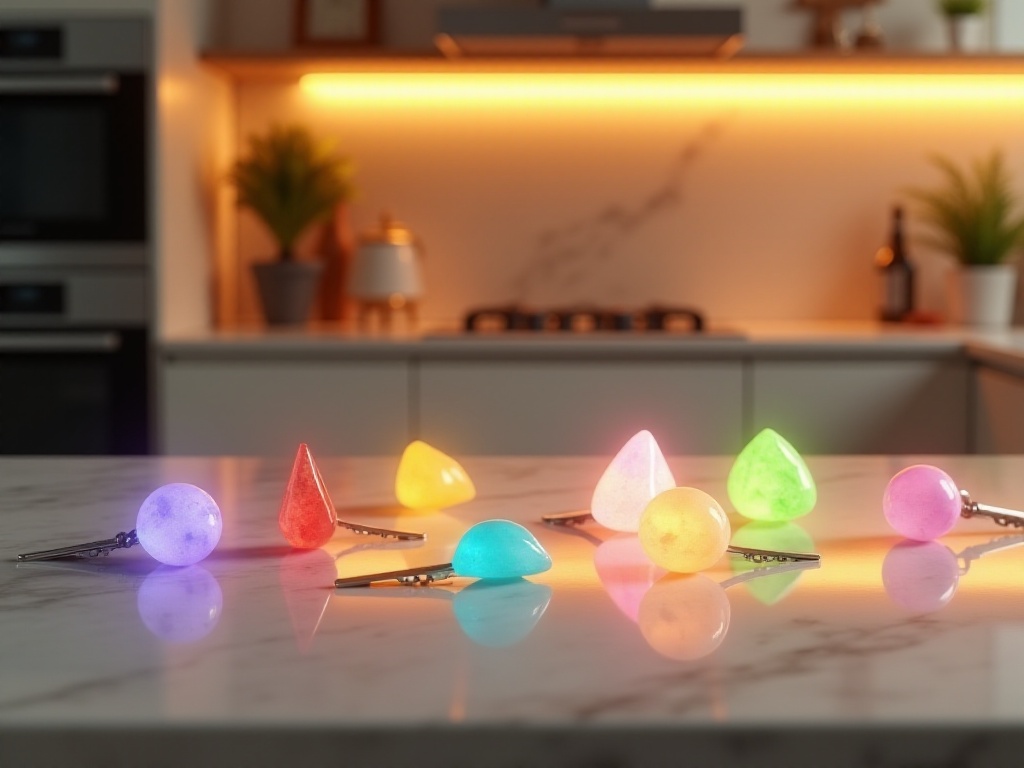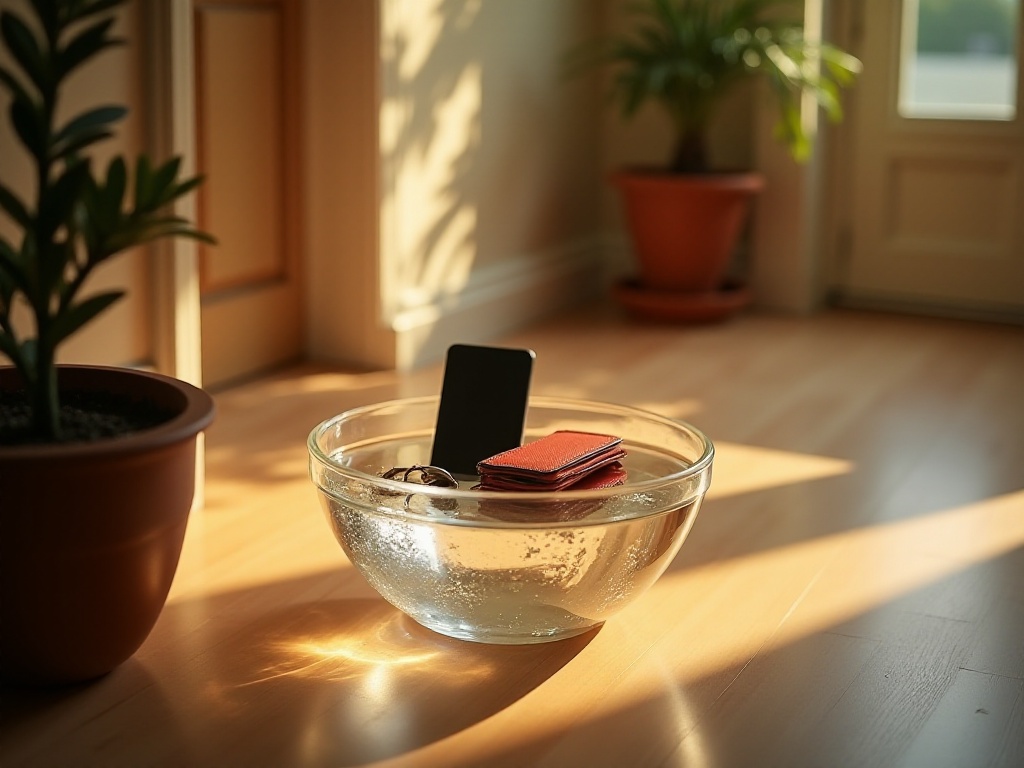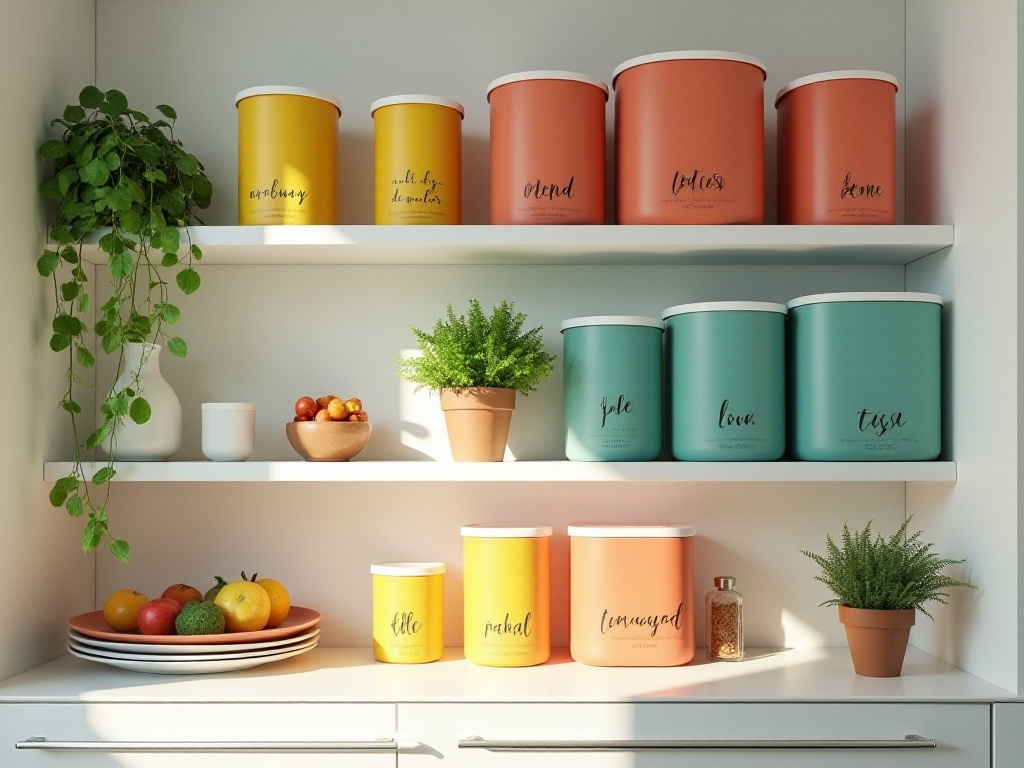Introduction
I was truly fed up with frantically searching for my keys every morning! Especially when rushing to work, having everything else ready only to discover at the last moment that my keys were hidden in some corner. Once I almost missed a crucial meeting just because I was desperately searching for my keys at home, only to find them quietly lying in the pocket of the jeans I had changed out of the night before! That feeling was awful - anxious, angry, and helpless. But now I've completely transformed, from someone who constantly misplaced their keys to a friend-acclaimed organization expert. Today, let me share my experiences and teach everyone how to scientifically manage their keys.
Basic Preparation
Honestly, modern people have so many keys. I counted mine - just the ones I carry daily add up to five or six. House key, car key, company front and back door access cards plus keys, parents' house key, locker key... Every morning before leaving, I have to confirm if I've got this whole bunch of keys. Most frustrating is that these keys all look super similar! Sometimes I stand at the door trying several keys before finding the right one, especially when the lighting is poor at night - it's absolutely maddening.
So the first step we must solve is how to quickly distinguish between different keys. Through my years of exploration and practice, I've found the simplest and most effective method is to mark different keys. But don't underestimate this seemingly simple step - if done incorrectly, it not only won't achieve the expected effect but might make things worse.

Clever Use of Nail Polish
When it comes to key marking, many people's first thought might be key rings or small pendants, but I want to recommend nail polish! Yes, the same nail polish used for manicures. This is a magic tool I discovered by accident, and it's absolutely the most cost-effective choice.
Why choose nail polish? First, nail polish comes in an incredibly rich variety of colors, from basic red, orange, yellow, green, blue, indigo, and purple to various glitter and glow-in-the-dark options. Second, nail polish is very durable - it doesn't easily fade even with frequent key use. And compared to specialized key marking tools, nail polish is so much cheaper!
Here's my current key marking system: house keys are painted bright red (eye-catching and festive), car key is deep navy blue (looks sophisticated), office keys are grass green (for a vibrant work atmosphere). I recently got a glow-in-the-dark nail polish for my locker key, which is super convenient when getting things at night.
There are several tips to note when marking: first, clean the key thoroughly before painting, preferably with alcohol disinfectant; second, paint a small dot on the key head, don't apply too much to avoid affecting use; third, wait for the nail polish to completely dry before using, recommended 24-hour waiting period.

Fixed Location Method
At this point, some might ask: "The marking is done, but what about keys being scattered around the house in various corners? What can we do about that?" Don't worry, here comes my proudest trick - the fixed location method.
The core of this method is finding a fixed "home" for your keys. Sounds simple, right? But there are many considerations in execution. First, this location must be chosen in a "must-pass area" of your home, preferably near the entrance. Since you pass through here when entering and leaving, it's convenient for both putting down and picking up keys.
During renovation, I specifically installed a small shelf on the wall near the entrance, where I placed a vintage ceramic key bowl. I specially found this bowl at an antique market - it's not only practical but also artistic, adding a touch of style to the space. Every time I return home, the first thing I do is put my keys in the bowl - it's become muscle memory.
I remember when I first started forming this habit, I even stuck a note at the door reminding myself: "Dear, don't forget to put away your keys!" Though it seemed a bit silly, it really worked. After about a month of persistence, the habit was completely formed. Now I can accurately place my keys in the bowl even with my eyes closed!
Interestingly, this habit influenced my roommate. Seeing how organized I was every day, she started following suit and hung a cute key hook by her room door. Now neither of us has to search all over for our keys, and we're never frantically searching in the morning before heading out.
Smart Storage
Speaking of key storage, we can't ignore the currently popular smart storage solutions. As a tech enthusiast, I've thoroughly researched every smart key storage product available on the market.
Today's smart key storage products are becoming increasingly sophisticated. Some products come with Bluetooth tracking, allowing you to quickly locate your keys through a phone app; some have loss prevention alerts that notify your phone when you've left your keys behind at a certain distance; even more impressive are products that can record key usage frequency and time, helping analyze usage habits.
According to the latest market research data, the global smart key storage market size has already exceeded $4.7 billion in 2024, and this number is still growing rapidly. It's projected to reach $8 billion by 2026. What does this data tell us? It shows that countless people worldwide are troubled by key management issues and are willing to pay to solve this problem.
However, honestly, while these smart products are cool, not everyone needs them. If you don't have too many keys, traditional storage methods work perfectly fine. After all, tech products do have some usage barriers, such as requiring regular charging and potential system failures. So I suggest everyone choose based on their actual needs rather than blindly pursuing high tech.

Emergency Plans
No matter how much preparation we do, unexpected situations can still arise. For instance, what if you really lose your keys? Or suddenly realize you've locked your keys inside? These are issues we must prepare for in advance.
First, I strongly recommend everyone prepare a set of spare keys. But note that spare keys should never be kept with your daily-use keys - this completely defeats the purpose of having spares. The best approach is to entrust them to nearby family or friends. Of course, carefully consider whether the person is trustworthy before handing over your keys.
My spare key system works like this: house key copies are with my parents who live in the neighboring complex; car key backup is with my friend Xiaomei who works near my office; as for office keys, my colleague and I keep each other's spares. This way, even in emergencies, problems can be solved in minimal time.
Another tip is to record important key information. For example, key models and contact information for key-cutting services. I keep an encrypted document in my phone's notes specifically for recording this information. This prevents panic in emergency situations.

Practical Experience
Actions speak louder than words - I recently helped three good friends organize their key storage systems, with excellent results.
Let's start with Xiao Wang's case. He's a financial analyst who works very late regularly. Previously, he spent nearly fifteen minutes every morning looking for his keys, seriously affecting his work schedule. I helped him design a simple storage system: placed a glow-in-the-dark key rack at the entrance and color-coded his various keys. Now he can leave on time every morning without worrying about being late. According to him, he saves an average of 15 minutes daily looking for keys - that's over 90 hours a year!
Xiao Li's situation was quite special. As a yoga instructor teaching at different venues, she has many keys. Previously, she would randomly stuff them in her bag, often unable to find the one she needed. I customized a classification storage solution for her: bought a multi-layer key case, with different venue keys in different layers, labeled on the outside. Now she can quickly find the keys she needs before each class, no more fumbling in front of students.
Xiao Zhang's story is the most interesting. As a freelancer who frequently changes rental apartments, she often lost her keys, spending quite a bit on replacements. I taught her to use smart key fobs and helped her establish a complete key management process. These suggestions helped her avoid losing any keys in the past six months, saving considerable key replacement costs.

Advanced Techniques
For friends who have mastered basic storage methods, I'll share some advanced techniques to take your key management to the next level.
First is the "linked storage method." The core idea is to keep keys together with other frequently used items, forming a complete item management system. For example, I specifically designed an "essential items zone" at the entrance, containing not only the key bowl but also a wallet tray and mask hooks. This way, checking just one area before leaving ensures all important items are accounted for.
I also developed a "time zone method." This involves organizing keys into different areas based on usage frequency and timing. For instance, daily-use keys go in the most visible spot; weekend-only keys (like gym locker keys) go in another area; rarely used keys (like parents' house keys) can be stored in drawers. This prevents clutter while allowing quick access to needed keys.
Another tip is the "key rotation system." This involves regularly checking all keys, putting away rarely used ones and keeping frequently used ones accessible. This reduces the number of keys carried daily, making your keychain lighter. I usually check quarterly, which also helps confirm if any keys need replacement or retirement.

Storage Pitfalls
While helping others organize, I've noticed many people fall into certain pitfalls that not only fail to solve problems but often make situations worse.
The most common is "multiple spare key syndrome." Some people think more keys mean more security, resulting in spare keys everywhere, actually increasing management difficulty. From my experience, two keys per lock is sufficient: one to carry and one as backup. More just creates confusion.
Another pitfall is "random storage syndrome." Many people think keeping keys anywhere in the house is fine, resulting in keys scattered in various corners. This not only makes finding them difficult but increases risk of loss. Remember, keys must have a fixed storage location.
The third common pitfall is "over-reliance on technology syndrome." Some people spend big money on smart key storage products but don't develop good usage habits, still frequently losing their keys. Remember, even the best tools require proper use methods.

Conclusion and Future Outlook
Through these methods and techniques, I believe you can also establish a perfect key management system. However, remember that good habits take time to cultivate - don't expect immediate results. It took me nearly half a year of persistence to transform from someone who frequently lost keys to today's organization expert.
Now every morning when leaving home, I no longer frantically search for keys. They quietly lie in the ceramic bowl by the entrance, waiting for me to take them and start a new day. This feeling is really nice, like a small happiness in life.
After sharing all this, do you have your own unique key storage method? Or have you encountered any problems while implementing these suggestions? Actually, everyone's living habits are different - the most important thing is finding what works for you.
Let's say goodbye to key anxiety and welcome an easier life! After all, life should be simple and orderly, don't you think?
If you have any unique storage tips, feel free to share in the comments. Perhaps your experience could help other friends who are worried about key management!




